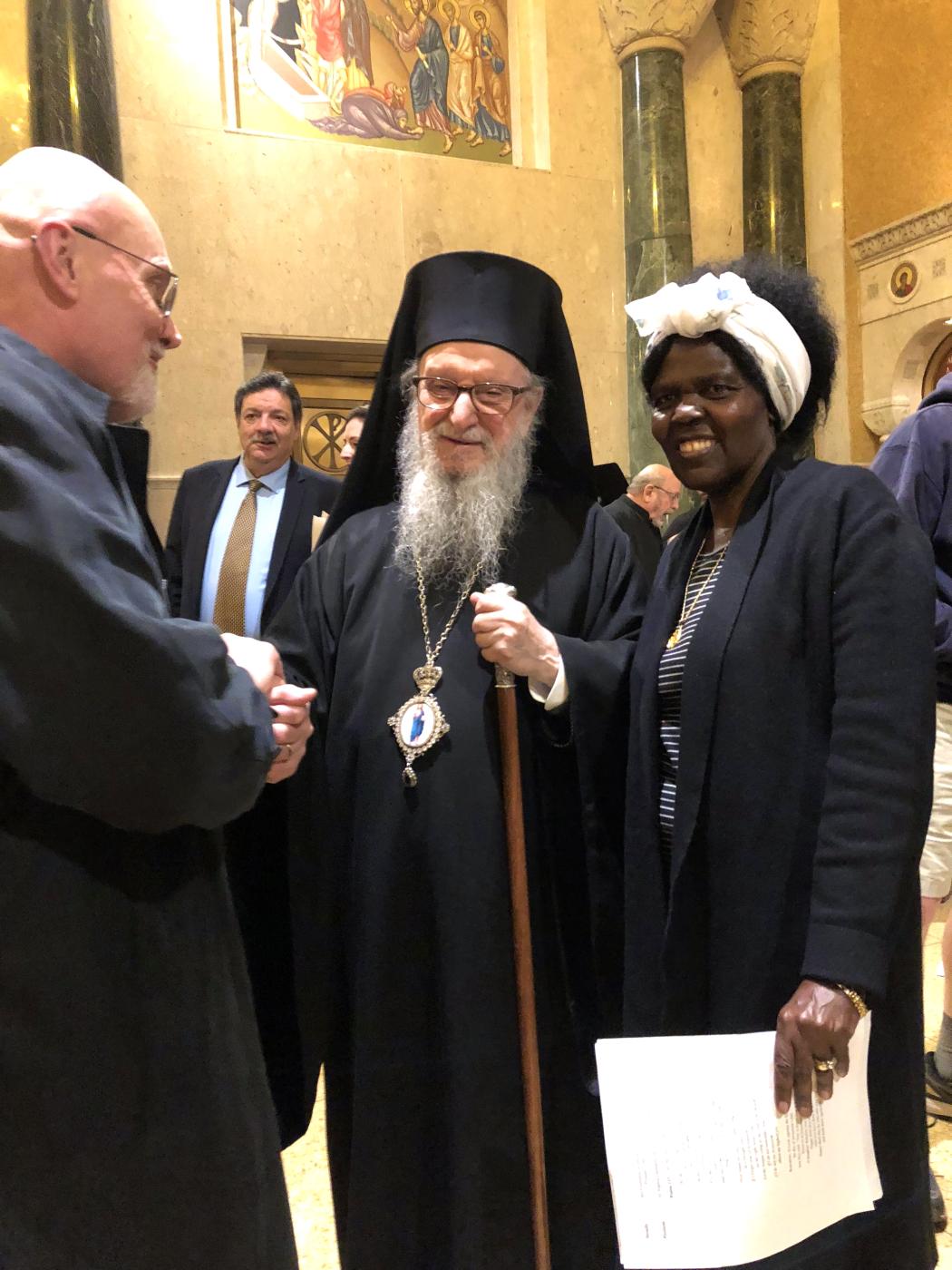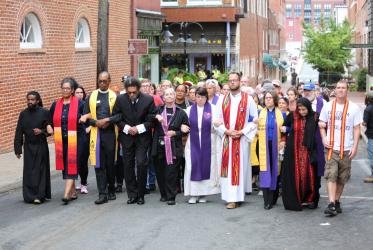An ecumenical gathering and an Orthodox Holy Week liturgy on Tuesday evening, 3 April, kicked off three days of US church engagement with the persistent realities of racism in American life.
The Orthodox liturgy at St. Sophia Greek Orthodox Cathedral in Washington, D.C., offered a glorious setting for the event and highlighted its broad confessional participation.
It was followed by an Ecumenical Gathering, hosted by the church and featuring key actors from the event’s initiator and coordinator, the National Council of Churches of Christ in the USA (NCC) and other participants, including Archbishop Demetrios of America.
In line with its Pilgrimage of Justice and Peace, the World Council of Churches (WCC), represented by central committee moderator Dr Agnes Abuom, has joined 50 NCC member churches, church agencies, and allied organizations, in sponsoring the effort.
Race and racism are longstanding issues in the US, and frequent flashpoints of violence.
Observing the 50th anniversary of the assassination of Rev. Dr Martin Luther King, Jr., the three-day event, entitled “Act Now to End Racism,” promises a harsh but hopeful look at racism in the US, including, most strikingly, in the US churches themselves.
NCC chair Bishop Darin Moore urged prayer and action to confront what he described as a deep-seated evil in the country. “America is in the midst of a crisis of soul,” he said. “Yet I still believe what Dr King so powerfully stated 50 years ago: that we as a people will get to the promised land.” Repentence, he said, referencing the biblical concept of metanoia, “is what will turn away the sin of racism and white privilege.”
As she brought greetings from the WCC, Abuom said the WCC comes to accompany US churches on what is a painful and tragic history but also a hope for a better country. “We continue to name racism as a sin,” she said. “As pilgrims, we repent of our failure to live up to our calling as transforming disciples of Jesus Christ.”
Rev. Dr Sharon Watkins, coordinator of the Act Now campaign, urged people to recommit to finish the work to end racism in the USA. Asking churches to examine their own complicity, she espoused the initiative’s methodology of “Awaken, Confront, Transform.” “We are called to bear witness to something the world doesn’t believe is possible,” she said. “We can unite to end racism. We can do it. It’s God’s vision from the very beginning of time.”
In his homily, Archbishop Demetrius, primate of the Greek Orthodox Archdiocese of America, reflected that, as April 4 marks the 50th anniversary of the assassination of Dr King, we must continue the struggle for equality. “We are called to work together regardless of race, gender, creed or color to end racism because Jesus Christ is representing everyone and all on earth as asuperb human prototype.”
Three-quarters of Americans call themselves Christians, he said, so “to make a serious difference…we must begin with our own community.”
Said NCC’s general secretary and president, Jim Winkler, “We have for too long lived under the scourge of racism in our society. To begin the process of healing our nation, we as Christians must join people of all faiths in holding ourselves accountable for our complicity, and commit to righting the wrongs.” To acclaim, he said, “Enough is enough! We can be the agents of transformation. We can end racism.”
Organizers hope that Wednesday will witness tens of thousands of marchers converging at the Martin Luther King, Jr., memorial in Washington, D.C., to march silently and then rally on the National Mall to hear prominent preachers, activists, and entertainers encourage a courageous new effort to acknowledge and address the many manifestations of racial bias in housing and employment, policing and incarceration, and the lives and polity of churches.
Learn more about “Act Now to End Racism”
Read about the NCC’s and US churches’ involvement in the historic civil rights movement







